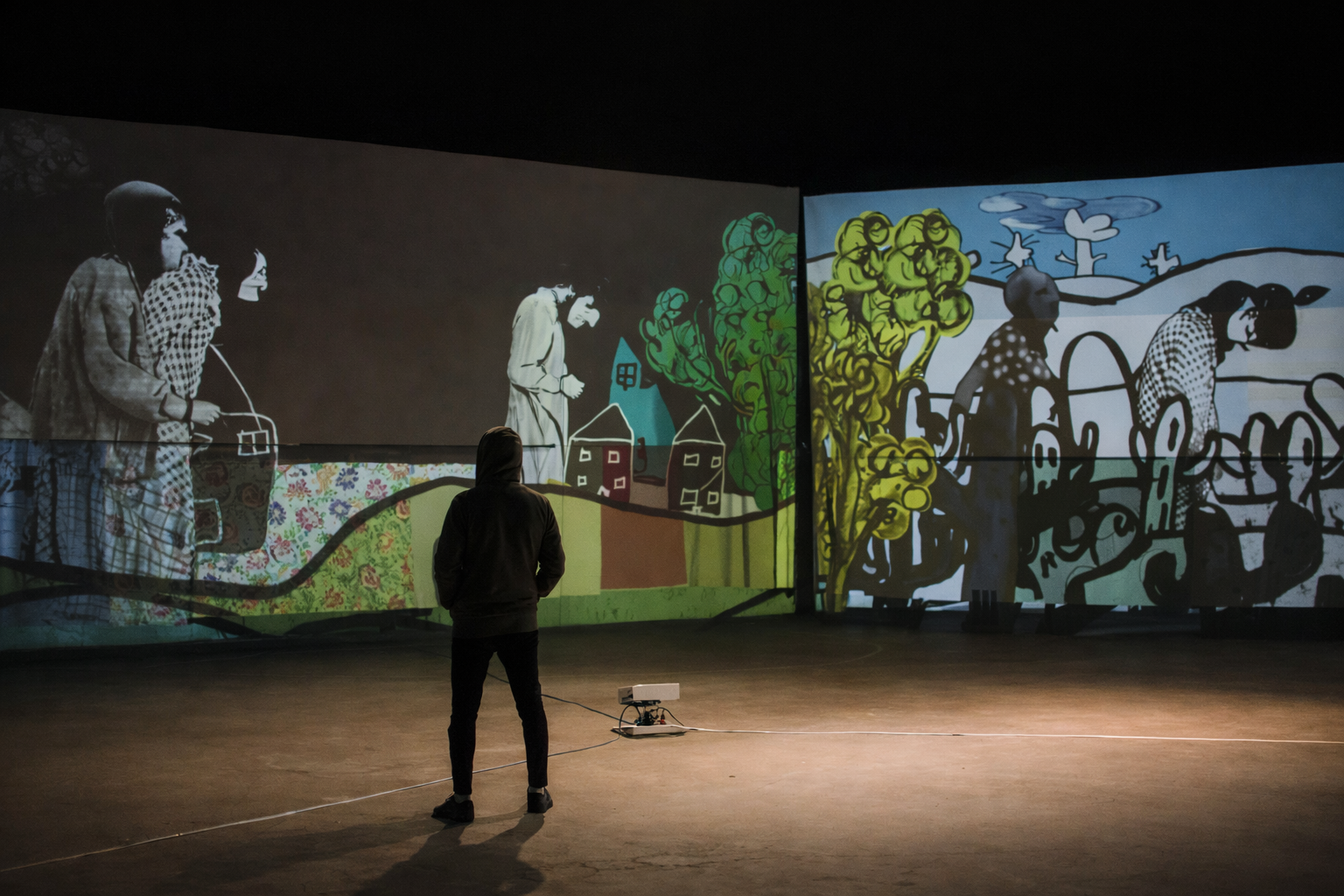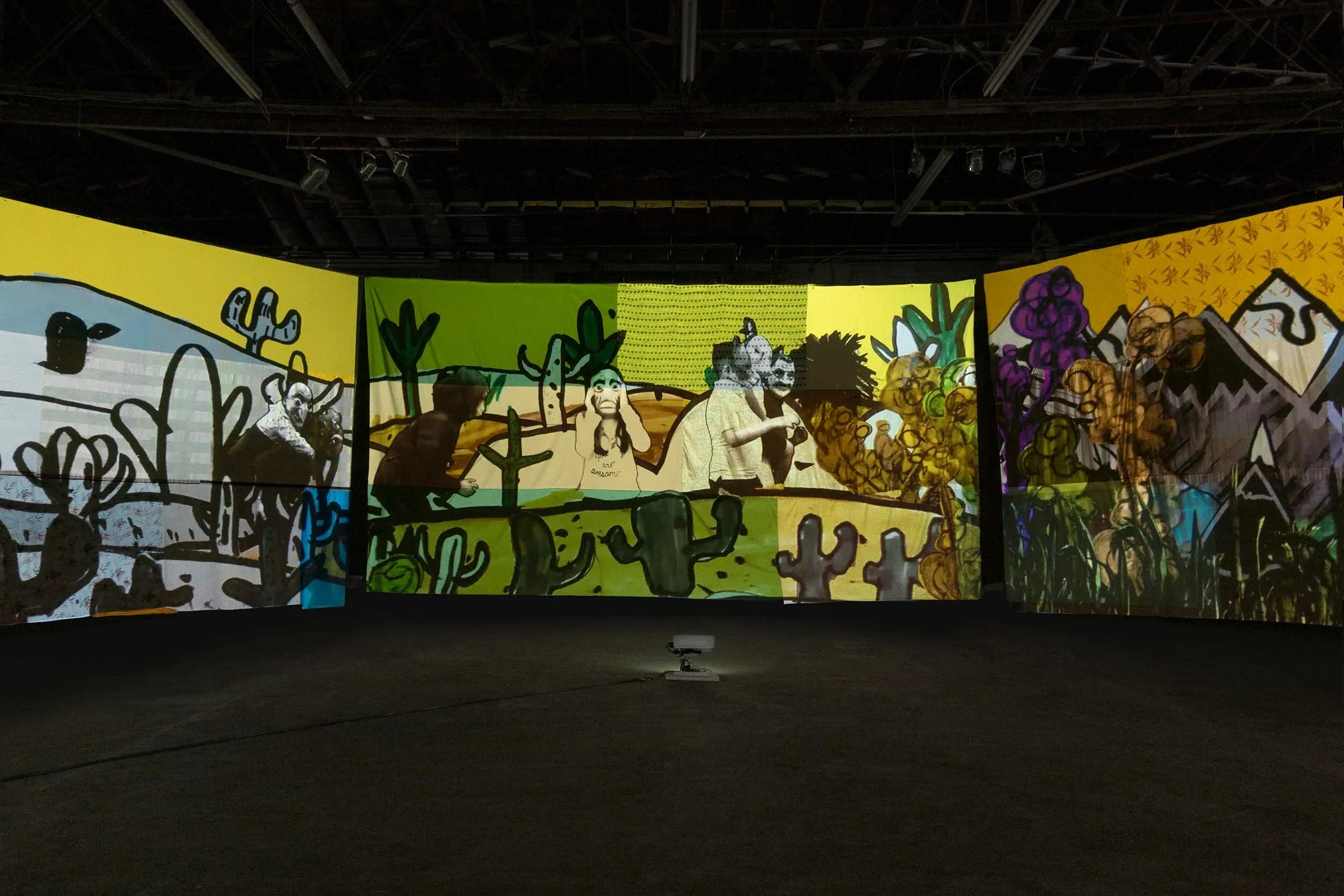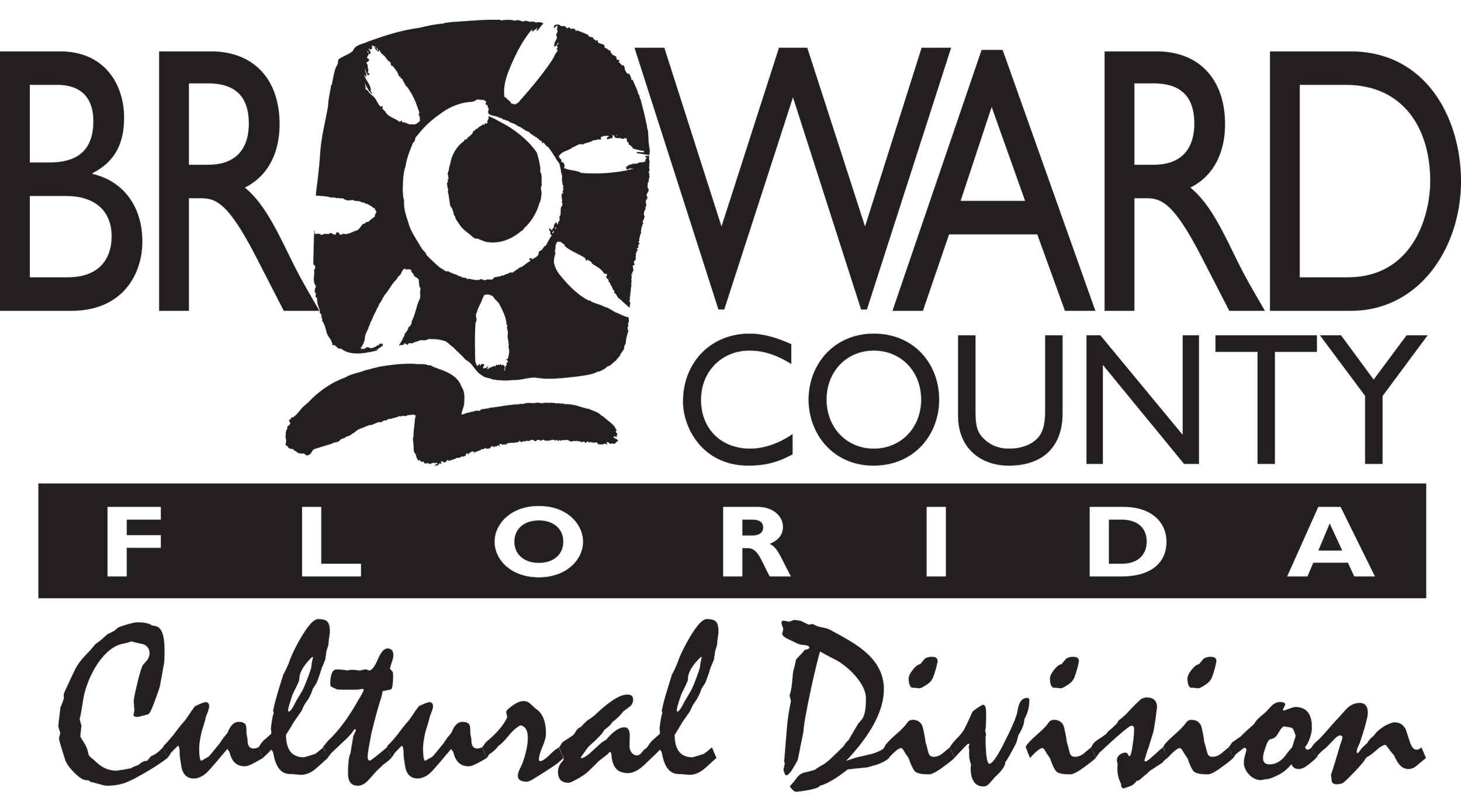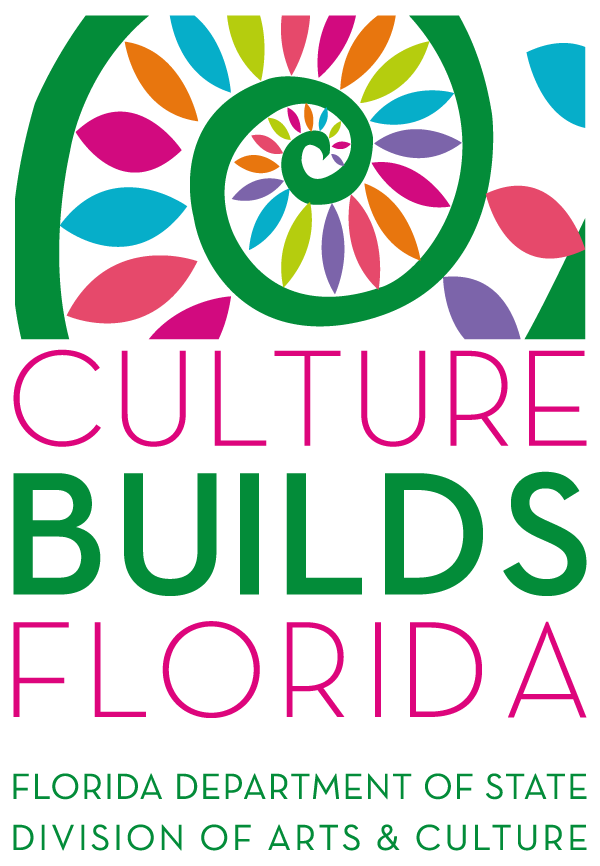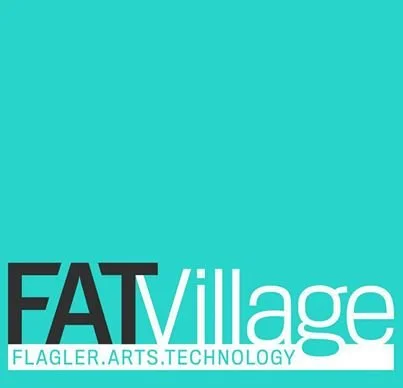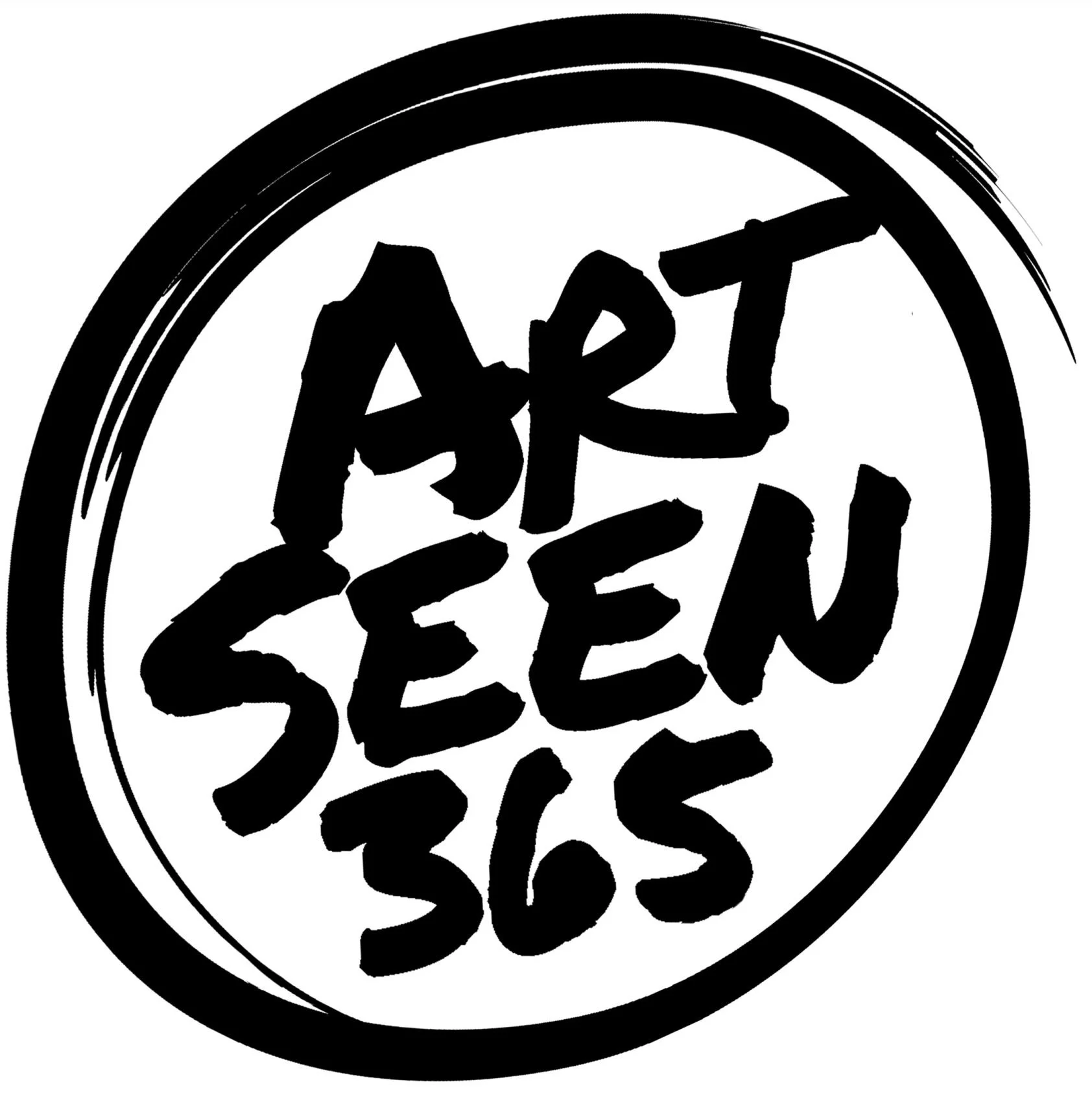THE PERSISTENT CARAVAN
A dual exhibition
The Projects, Fort Lauderdale, FL, USA
January 25 - September 30, 2020
The Persistent Caravan, 2020
There is something about immersive art that makes it an experience like no other. This is certainly the case for The Persistent Caravan, a collaborative, immersive, multi-disciplinary installation by artists Aurora Molina and Edison Peñafiel, shown at FATVillage Projects, in Fort Lauderdale.
Both artists are originally from Latin American countries, Aurora from Cuba, Edison from Ecuador. They both came to the US as teenagers, Aurora at age 16, Edison at 17, not yet adults, no longer kids. Both have experienced being separated from their immediate family due to immigration circumstances, both were able to find their way to Art School, both have been working on their craft for a while, always tuned to the immigrant experience, that has been so central to their own lives. Both have the understanding that they have been, in a way, privileged, with situations that were solved, with paths to legalization, with a future they had to work for, but that was possible.
Both artists knew that was not the case for many others, youngsters and adults alike, that have no real path to resolution, that will be forced to stay out, or to stay in the shadows, never becoming real citizens, never being without the fear of being found out. But they also knew this problem is not new, or limited to the experience of Latin American people wanting to come to the U.S. No, this is an age-old problem, that keeps happening, reappearing with many different attires, and accents, at many different places, for people crossing many different paths, through ages, in a persistent caravan.
Will this caravan ever stop? Not likely. Will people stop traveling, leaving one place to find a better life somewhere else? Not likely. What do these people need? Can’t they just stay where they are? Not likely. Will they come and take our jobs, our space? Not likely. Could any of us end in a similar situation? Not impossible.
Aurora Molina is a fiber artist and through her work, she has been tackling themes such as identity, migration, environmental concerns, etc. In the last couple of years, Aurora has created very poignant works about migrant children such as Cacophony of Wails and Sobs and Children of Immigration are forgotten, where the softness of fiber gives form to strong statements about wrong policies and the hypocrisy of our short attention span, that can only focus on what has most recently been in the news.
Edison Peñafiel has been creating multimedia installations about those on the underside of the world’s major conflicts: the migrant, the laborer, the surveilled, highlighting how the repetitive cycles of history keep on producing human catastrophes that end affecting all of us one way of the other. His pieces look to involve the audience and to confront them with realities that could be uncomfortable but necessary. In pieces like Ni Aquí, Ni Allá, and Sempiterno, Edison had started to contemplate the plight of the migrant and the absurdity of never-ending cycles.
It is not surprising that these two artists would have come together to do a true collaboration where elements of both their practices blend very well in one phenomenal piece. Together they work on producing what is most needed among people: empathy, understanding, presenting questions about why others do what they do, and if would we do the same? The answers to those questions are hard to know. It is even harder if you are never confronted with similar circumstances, or if you don’t ever ponder them.
And ponder you will, once you are surrounded by this makeshift open tent made of 8 giant panels of quilted fabric (25ft x 15 ft each), sewn by both artists, covered by a never-ending loop of characters, walking perennially, traversing different landscapes without getting anywhere.
The characters are wearing plain everyday clothes, globalization dresses us all the same. They are also wearing masks, as their trip is furtive, they are better unseen not to be sent back, not to be derailed. Their pace is slow and constant because this is a trip that started a long time ago and seems never-ending.
The video part of the work evolved from a previous piece by Edison Peñafiel titled Land Escape, in a play on words referring to the spaces through which migrants travel and the reasons why they do it. In the original piece, the artist and one friend play all the characters. For this installation, the artists involved the kids from the ‘Project Art’ Program at the Hispanic Library in Little Havana (Miami), where Aurora Molina teaches art after school. The kids were happy participants; for them, recording these images was a game in front of a green screen, choosing masks and playing along, directed by the artists. The kids also drew the different landscapes that serve as a backdrop to this infinite loop: mountains, the desert, a town, a city. These drawings were animated and layered on top of the video by Edison. The whole experience is completed by the music created for the piece by Sharon Smith.
What do we know about the people in this caravan? That they are escaping their circumstances, that they are leaving behind their lives. They have been persecuted, evicted from their own homes, from their own countries. Countries that can be near or far from where we are, across the oceans, across mountains, or just next door.
But why do we need to know? What do we need to do? Just ponder. Just think for a minute what would you do to save your children from danger, and how much danger would you have to be in to get on a little boat to cross an ocean, or to start a walk with no end, through deserts and mountains you have never been to.
And what good will it make to ponder? Just to realize these are human beings looking for a better life. Maybe we can gain some respect for their journey, because in a world were livable space keeps shrinking, even as we keep burning and cutting forests to make space for more houses, more crops, more cattle, more industry, we are not exempt from one day entering The Persistent Caravan.
Dainy Tapia
ArtSeen365
The Persistent Caravan, 2020
Funding for The Persistent Caravan was provided in part by the Broward County Board of County Commissioners as recommended by the Broward Cultural Council, Culture Builds Florida, and the National Endowment for the Arts. Additional support provided by FAT Village and ArtSeen365.
